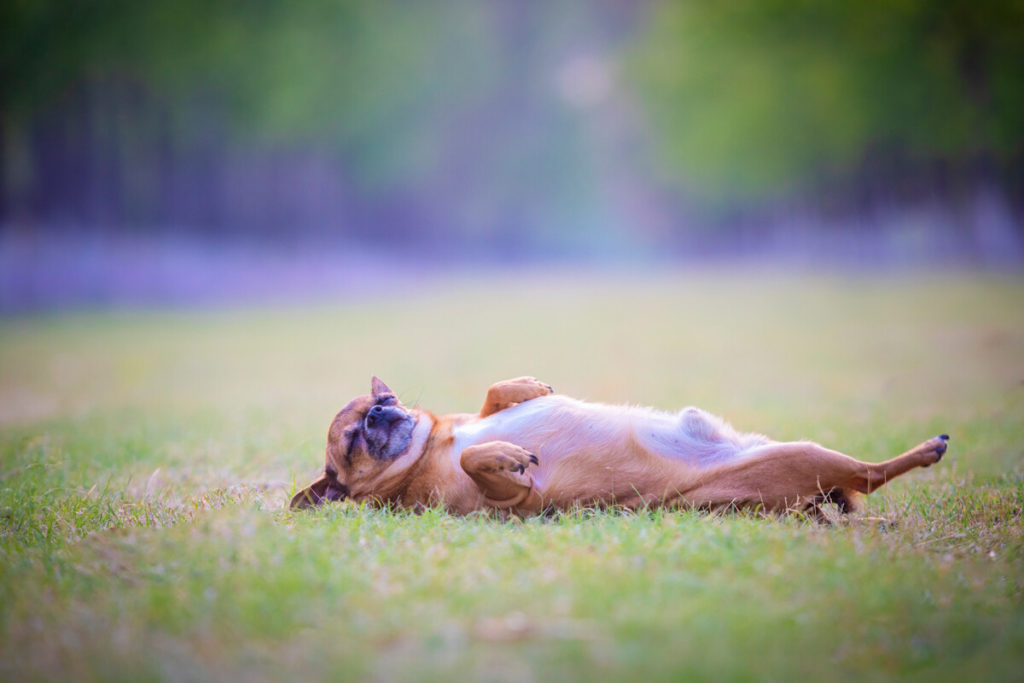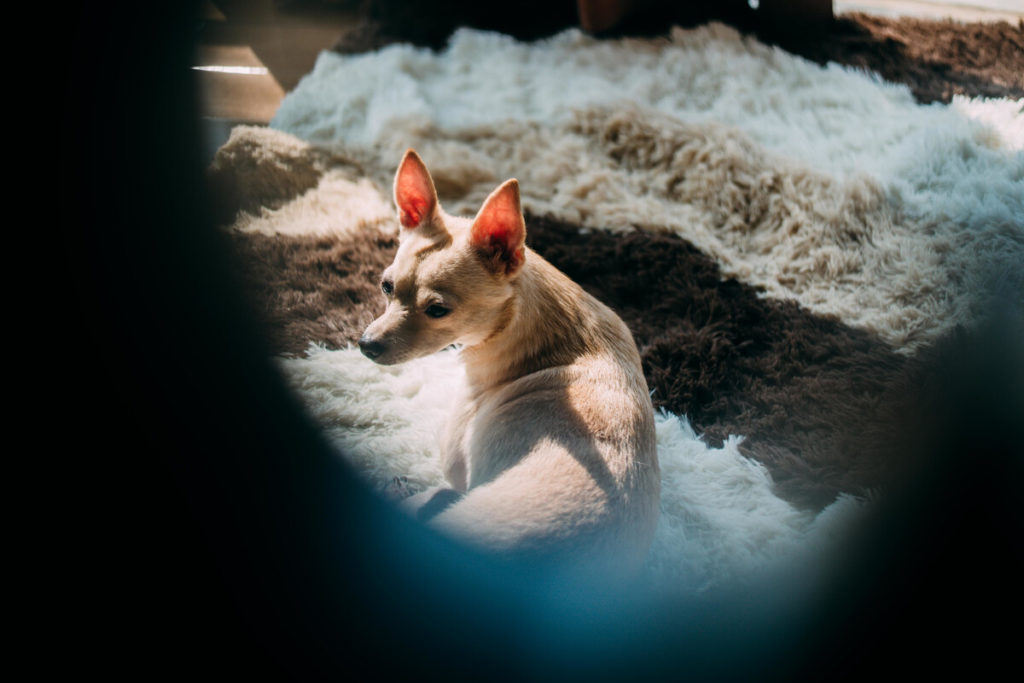Are you wondering how easy is it to train a Chihuahua? Or what basic training you need to do with your Chihuahua puppy? Maybe you’ve adopted an adult Chihuahua and want to know if it’s too late to start training them? We’re going to answer all your questions about Chihuahuas and training.
Are Chihuahuas easy to train? No, but if you put in the time and do it consistently, it gets much easier. Chihuahuas have a reputation for being really hard to train, but you just need to be patient. Your Chihuahua needs to know you’re in charge and he has to listen. Once he’s got that, training is easier.
If a Chihuahua has just joined your family, you’re probably thinking about doing some training. Read on to find out where to start, if Chihuahuas can be trained, what training you need to do, and whether old Chihuahuas really can learn new tricks!

Why are Chihuahuas hard to train?
Chihuahuas were originally bred as hunting dogs to follow scents and chase down badgers. They were raised to think on their own. This independent streak made them stubborn. In fact, they’re one of the most stubborn dog breeds, making them hard to train.
Can Chihuahuas be trained?
Yes, Chihuahuas can definitely be trained. Puppies are much easier to train than adult Chihuahuas, but, even if your Chihuahua is an adult, you should still be able to make progress with a positive and consistent approach. Potty training and excessive barking are the most challenging areas of training.
This is what you need to know:
Be positive
Positive reinforcement is the best way to train a Chihuahua. This means rewarding good behaviour with treats and praise, and ignoring or calmly correcting any bad or undesirable behaviour. Basically, Chihuahuas are much more likely to potty outside if they get rewards and praise for doing so. They then associate pottying outside with tasty treats and fun.
Shouting at your Chihuahua for weeing indoors will just scare and confuse him. It could even lead to frustration, anxiety or aggressive behaviours further down the line. Building a positive bond with your Chihuahua will make him a more confident and independent dog.
Set boundaries
Make sure you’re really patient and consistent with your Chihuahua. It’s no good training him not to go on the sofa one minute and then letting him up for sofa snuggles the next – he’ll end up totally confused. Decide what you’re going to allow your Chihuahua to do and stick to it.

Be consistent
Chihuahuas are hilarious and will do naughty things just to get your attention. So when they’re young, you do need to be a bit firmer with them. This doesn’t mean shouting or scolding. This means sticking to your guns and giving calm but clear corrections. Chihuahuas are wilful and independent spirits, which is why we love them so much, but it’s also why you need to be consistent with training! Your puppy needs to know you’re in charge and that he’s not in charge of you or anyone else in the family.
Put time in
When you get a puppy, it’s best to take a few weeks off to start the new routine. Or make sure there’s someone calling in to help you with the training. Anyone that looks after your Chihuahua should also follow the same approach so his training doesn’t get mixed up. Basic training can take a few months, so someone will need to be around to help your puppy settle and learn the ropes.
Keep sessions short
Keep your Chihuahua’s training sessions nice and short. Chihuahua dogs have short attention spans and young pups need their rest. About 10-15 minutes at a time is perfect. And repeat the sessions 3 or 4 times a day until he gets the hang of it.
Time it right
Chihuahuas only understand what’s happening right now. So, if you ask your Chihuahua to sit and he sits, you must reward him right away. He needs to understand what he’s being rewarded for. Use a verbal cue too like ‘Good Boy’ or ‘Good Girl’. Some people use a ‘clicker’ as a training tool to reinforce that connection. Your Chihuahua will associate the noise of the clicker with a reward and understand what he’s doing right.
Remove distractions
Chihuahuas are easily distracted by people, animals, smells and sounds! So start your training in a quiet room with no one around. You want your Chihuahua to be focussed solely on you – not the squirrel on the fence! Once he’s mastered the basics, move into the garden and continue training out there. In time (and after all jabs), progress to the local park where there’s more distractions, people and other dogs around.

Keep it simple
Chihuahuas pick things up fast, but don’t overwhelm him with too many commands at once. If you’re trying to teach too many new things, he may get muddled or confused with all the verbal cues. Keep it simple and make sure he’s nailed the first command, before moving on to the next.
Make it fun
Make the training fun so your Chihuahua enjoys learning and getting things right. Once he’s picked up a new command, don’t stop there. Keep working on it at random intervals. This’ll keep him on his toes and remind him who’s in charge (that’s you by the way, not him!). Doing a bit of training each day is a great way to stop him getting bored and the perfect way to bond with your Chihuahua.
Get out and about
If you get your Chihuahua used to being around other dogs from a young age, he’s less likely to develop bad behaviours, like barking or being aggressive towards strange dogs when you’re out on walks. If you have friends or family with dogs, start by joining them for short walks (after jabs of course) and gradually build up to having play dates together.
Just make sure you introduce both dogs the right way, so you spot any signs of nervousness or aggression. Don’t worry if you don’t have any doggy friends. Another great way to socialise your Chihuahua is to join a Chihuahua Facebook group where they organise regular walks.
Don’t stop
Teaching your Chihuahua new things should be an ongoing thing. Chihuahuas are smart and love using their brains. So, once you’ve mastered the basics of training, move to the next level. Instead of asking your Chihuahua to fetch a toy, ask him to fetch a specific toy or item by name.
How do you discipline a Chihuahua?
The best way to discipline a Chihuahua is to ignore him. Chihuahuas hate it when they don’t get attention. So, if he does something wrong or undesirable, the best thing you can do is leave the room or look the other way. He’ll hate you doing this, but it’s a much more positive way to correct any bad behaviour than shouting or scolding him.
Chihuahuas have fun, comedic personalities. Even when they do naughty things, they do it in a way that’ll make you laugh for hours. You know when they’re being naughty (and they definitely know when they’re being naughty!) but that’s all part of their natural charm. So don’t ever get cross or use any form of physical punishment.

What age should you start training a Chihuahua puppy?
Start training your Chihuahua puppy when he’s 8–12 weeks old. If you’ve only just got him, give him a few days to settle into your home. This is the perfect age for him to learn basic commands like ‘Sit’, ‘Stay’ and ‘Down’. Just remember to keep sessions short so you don’t overwhelm him.
What are the best training treats for a Chihuahua?
The best training treats for a Chihuahua are chunks of carrot or cucumber, small cubes of cheese, small bits of chicken, dried fish sprats, kibble, chopped hotdogs or shop bought training treats. You may need to give your Chihuahua quite a few treats to start with, so use something small, healthy and natural.
Only use high value treats like ‘cheese’ for very special occasions or when you’re teaching a new command. Use different treats too, so your Chihuahua doesn’t get bored of them. You can also use praise and fuss because this can be reward enough for some Chihuahuas!
How do you train a Chihuahua that isn’t food motivated?
If your Chihuahua isn’t motivated by food, use praise or give him a new toy. Playtime is a big motivator for a Chihuahua, and they love things like balls or squeaky toys (the louder the squeak, the better!). You can also change the tone of your voice to show your Chihuahua when he does something right.

What training do you need to do with a Chihuahua puppy?
The basic training you need to do with a Chihuahua puppy is:
- Crate training
- Potty training
- Barking training
- Chewing and nipping
- Socialisation
- Lead training
- Recall
- Basic commands
What commands can you teach a Chihuahua?
These are some of the commands you can teach a Chihuahua:
- Sit
- Stay
- Down
- Leave
- Come
- Fetch
- Drop
- Paw
- Round
- Speak
- Quiet
- Sing
- Gently
- Back
You can also teach a Chihuahua to roll over or sit up like a meerkat, but you do have to consider their back. Sadly, 1 in 4 Chihuahuas are prone to Intervertebral Disc Disease (IVDD) so be mindful of this when teaching new commands or tricks.

Can you train an older Chihuahua?
Yes. It’s possible to train an older Chihuahua, but they’re stubborn by nature so it can be more difficult. You need to be consistent, reward him for good behaviours (with treats and a big fuss), and correct him when he does something wrong (by saying a firm ‘No’).
If you ignore bad behaviour and praise good behaviour, you should make progress over time. You may not be able to train out all his bad habits, but should be able to work with him on some of them. Besides, the very act of training your Chihuahua and getting him to listen can give you much better control over him generally.
So, there you have it. Chihuahuas are stubborn and training isn’t always easy, but with time, patience and consistency you really can get there. The trick is to start when they’re young, set boundaries and stick to them. Don’t cave at the first sight of puppy dog eyes, and you’ll end up with an adorable little Chihuahua that knows what he SHOULD do – but may not always choose to do it!




